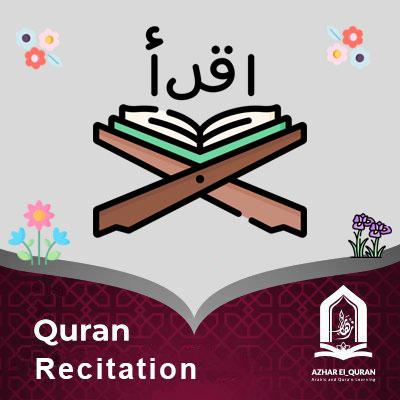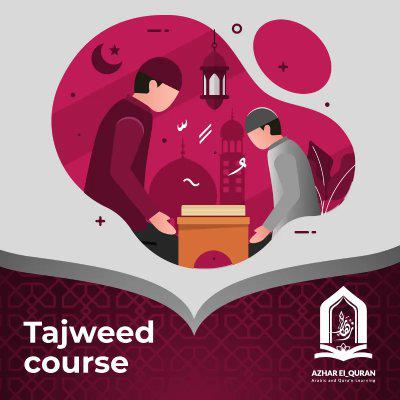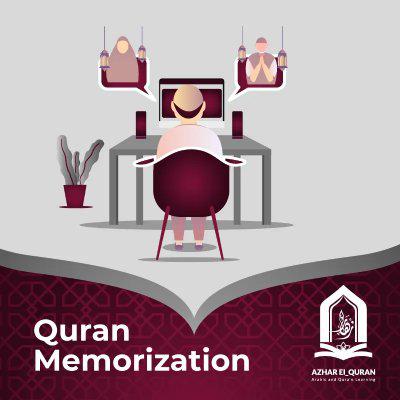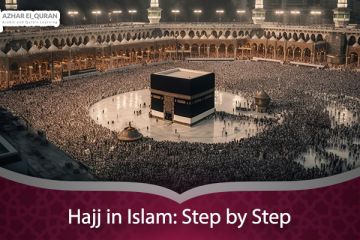
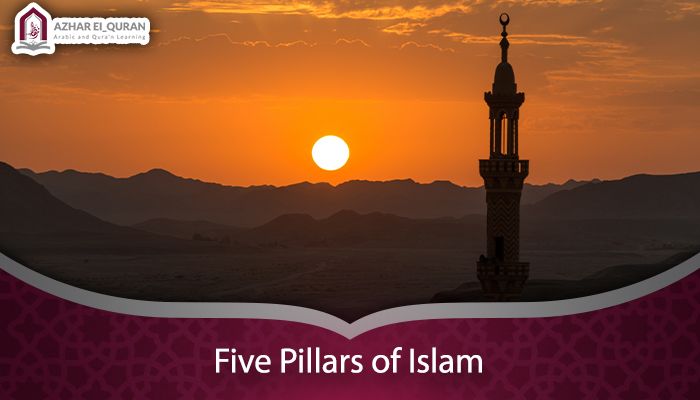
The Five Pillars of Islam are the foundations of the obligations of a Muslim, these comprise Shahadah, Salah, Zakah, Sawm, and Hajj. Islam is built upon a sacred foundation known as the 5 Pillars of Islam. These five acts in Islam of worship are the core of a Muslim’s faith, practice. Understanding these pillars is essential whether you’re a new convert or simply curious about Islam. In this guide, brought to you by the leading platform Azhar El-Quran, we will explore the five pillars of Islam, their significance, and how they strengthen the Muslim way of life.
What Are the Five Pillars of Islam?
5 Pillars of Islam are the five obligations that every Muslim must fulfill to live a good and responsible life according to the teachings of Islam. The five pillars are the core beliefs and practices of Islam. These acts are not merely symbolic; they are obligations every Muslim is expected to perform as part of their faith.
The five pillars include:
-
Shahada – declaration of faith in the Oneness of God and that Muhammad is His messenger. Testifying that there is no god but Allah and that Muhammad is the Messenger of Allah.
-
Salah (Prayer) – Performing the five daily prayers at prescribed times.
-
Zakah – Giving alms to those in need; a financial worship.
-
Sawm – Fasting during the holy Ramadan.
-
Hajj (Pilgrimage) – A once-in-a-lifetime journey to Makkah, Saudi Arabia, for those physically and financially able.
These pillars of Islam are the key to a meaningful Muslim life, guiding behavior, and reinforcing the sacred bond between believers and Allah.
The Importance of the 5 Pillars of Islam in a Muslim’s Life
The 5 Pillars of Islam, Shahada (faith), Salah (prayer), Zakat, Sawm, and Hajj (pilgrimage)—are essential for a Muslim’s spiritual life. The 5 pillars of Islam are the rules, basics, and principles upon which Islam was built. The importance of the 5 pillars of Islam and adherence to them by every Muslim has a large place in life. They strengthen faith, promote discipline, and foster unity among believers.
By fulfilling these obligations, Muslims maintain a direct connection with Allah, purify their wealth, develop self-control, and reinforce their commitment to Islam’s teachings. The Five Pillars of Islam aren't just religious duties; they are a way of life. Each pillar acts as a tool for spiritual growth, moral development, and service to others. If one of the five pillars is violated, they lose their Islam because the pillars are their source. Leaving one of the five pillars is a sin.
The Five Pillars of Islam
The five pillars of the Islamic faith are basic beliefs of Islam, obligatory acts of worship for all Muslims. Each of the 5 Pillars of Islam holds unique value and purpose. Together, they represent the core beliefs of Islam, shaping a Muslim's daily life and worship. The five pillars of Islam are Shahada, Salah, Zakat, Sawm, and Hajj (pilgrimage).
Shahada.
Shahada, or Shahadah, is the First pillar of the Five Pillars of Islam. It is the testimony of faith, declaring:
“There is no god but Allah, and Muhammad is the messenger of Allah.”
This simple but profound profession of faith is the entry point into Islam. Shahada confirms the belief in the Oneness of God and the finality of the Prophet Muhammad as His messenger. By uttering the Shahada, a person accepts the creed and begins a lifelong journey of faith and devotion. The Shahada (shahadah) is the declaration of faith in one Allah and His messenger. The Shahada is repeated in prayers and holds a special place in a Muslim’s heart as a constant reminder of their purpose and devotion to Allah.
Salah (Prayer).
Salah (Prayer) in the Five Pillars is an Islamic duty that all Muslims must adhere to by the command of Allah. Prayer (Salah) is performed five times a day facing Mecca. Friday is designated for congregational prayer. Salah (or Salat) is the prayer offered five times a day: at dawn (Fajr), midday (Dhuhr), afternoon (Asr), sunset (Maghrib), and night (Isha). These structured moments of worship create discipline, peace, and a sense of spiritual balance in a Muslim’s life.
Each prayer includes physical movements, recitations from the Quran, and praise of Allah. Salah strengthens the worshipper’s connection to the Creator, encourages reflection, and offers immense reward. Salah is one of the 5 pillars of Islam, and a religious obligation, the most important practice for all Muslims.
Zakat
Zakat and Charity in the Five Pillars of Islam. It is one of the most powerful forms of Islamic charity, ensuring wealth circulation and supporting social welfare. Zakat (also spelled Zakah) is the obligatory almsgiving of 2.5% of one’s savings to those in need. Unlike alms (voluntary charity), Zakat is a fixed obligation and is seen as a worship. It purifies wealth, cultivates empathy, and bridges the gap between rich and poor. By fulfilling Zakat, a Muslim not only earns Allah’s pleasure but also plays an active role in uplifting the community.
Fasting (Sawm).
Sawm, or fasting, during Ramadan is a deeply spiritual and physically demanding act of worship. From Fajr to sunset, Muslims abstain from food, drink, and immoral behavior. This annual obligation teaches self-discipline, gratitude, and compassion for the less fortunate. Saum also offers an opportunity for spiritual renewal and reflection. During Ramadan, Taraweeh salah is conducted, and many strive to complete the Quran. Fasting is considered a sacred ritual that brings immense rewards, both in this life and the Hereafter.
Hajj.
Hajj is the Spiritual Journey in the Five Pillars of Islam. Hajj is the pilgrimage to Mecca, and it is required once in a lifetime for those who are physically and financially capable. This sacred journey occurs annually during the Islamic month of Dhul-Hijjah.
Pilgrims carry out a series of rituals, including:
- Tawaf: Circling the Kaaba.
- Sa’i: Walking between the hills of Safa and Marwah.
- Standing at Arafah: For prayer and reflection.
- Stoning the Devil: Symbolic rejection of evil.
Hajj is one of the pillars of Islam, a sacred pilgrimage to Mecca in that every able Muslim must perform once in their lifetime. The Hajj brings together Muslims from all over the world, Hajj in Islam is one of the pillars of Islam. These pillars are the foundation upon which a believer's faith is built. Pilgrimage in Islam is an obligation upon every sane, adult, and capable Muslim. Hajj is one of the pillars of Islam.
The Prophet Muhammad (phub) said:
"Islam is built on five pillars: testifying that there is no god but Allah and that Muhammad is the Messenger of Allah, establishing prayer, paying zakat, fasting Ramadan, and performing the Hajj to the House for those who can do so."
However, the basic articles of faith are belief in the oneness of Allah, belief in the prophets and the books that were bequeathed to them, faith in the angels, faith in the Day of Judgment, and faith in fate.

Facts about the Five Pillars of Islam.
The Five Pillars of Islam are the fundamental practices of Islam, serving as the essential framework of a Muslim’s faith and worship. These pillars, called the Five Pillars of Islam: Shahadah, Salah, Zakat, Sawm, and Hajj (pilgrimage), form the building blocks of Islam, guiding every worshipper in their regular spiritual duties. The first pillar, Shahada (or Shahadah), is the declaration of faith—a profession in which there is no god but Allah and that Muhammad is His Prophet.
The second, Salah (or Salat), requires Muslims to perform five daily prayers, reinforcing their connection with Allah. Zakat is one of the pillars of Islam, the obligatory almsgiving, where believers donate a portion of their wealth as alms to support the needy, embodying Islam's regard for charity.
Fasting or Sawm is one of the pillars of Islam, which involves fasting (SAWM), cultivating self-discipline, and piety. Finally, Hajj, the sacred pilgrimage, is a once-in-a-lifetime duty for those physically and financially able. These observances are deeply rooted in the Quran and Hadith, acting as a coordinator between faith and action. Together, they serve as the stock of Islamic life, uniting Muslims worldwide in devotion and submission to Allah.
Teaching the Five Pillars of Islam to Kids and New Muslims
Teaching the Five Pillars of Islam to kids involves simplifying core Islamic practices with engaging methods. Start with Shahadah (faith declaration), then Salat (prayer) through fun demonstrations. Zakat via sharing exercises, Fasting with short manageable trials, and Hajj (pilgrimage) through stories and role-play. Use visuals and games to make learning the five pillars and the specialty of Hajj (pilgrimage) interactive and memorable.
The leading platform, Azhar El-Quran, offers engaging videos and resources for both kids and parents to knowledge the Five pillars of Islam. Also, we offer classes to learn the Quranic Arabic Language Online. Learn with us Basic Practices of Islam: The Five Pillars 1. Shahada (Creed) · 2. Salat (Prayer) · 3. Zakat (Almsgiving) · 4. Sawm (Fasting) · 5. Hajj (pilgrimage).
